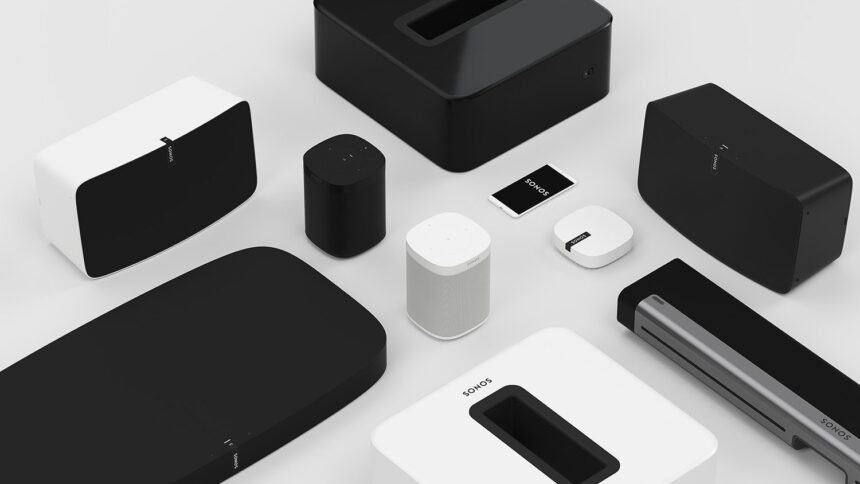A federal judge in California has invalidated a $32.5 million judgment awarded to wireless-audio company Sonos. The verdict was overturned after the judge deemed that Sonos abused the US patent system.

US District Judge William Alsup on Friday (October 6) said Sonos improperly linked its multi-room audio technology patents to a 2006 application, asserting precedence over Google‘s devices.
The ruling came after a jury in San Francisco in May ordered Google to pay Sonos for infringing one of the latter’s patented technologies related to multiroom audio following a trial.
At the time, Sonos said the verdict “re-affirms that Google is a serial infringer of our patent portfolio, as the International Trade Commission has already ruled with respect to five other Sonos patents.”
However, in the latest decision, Judge Alsup said: “Sonos filed the provisional application from which the patents in suit claim priority in 2006, but it did not file the applications for these patents and present the asserted claims for examination until 2019. By the time these patents issued in 2019 and 2020, the industry had already marched on and put the claimed invention into practice,” the judge ruled.
The ruling detailed that Sonos filed provisional applications in 2006, but only presented the claims for examination in 2019. By that time, the industry had already adopted the claimed invention. The judge noted that even if the 2006 applications had disclosed the invention, Sonos waited too long to claim it, to the detriment of Google and others.
“It is wrong that our patent system was used in this way… It was used to punish an innovator and to enrich a pretender by delay and sleight of hand.”
William Alsup, US District Judge
The case centered on patents related to managing groups of multimedia players in a multiroom system. The patents described customizing, saving, and invoking groups of multimedia players, referred to as “zone players,” as “zone scenes.”
Sonos initially sought to patent these concepts in 2006 and pursued a series of continuation applications over the following years. However, the patent examiner determined that “the prior art had already disclosed this idea.”
It wasn’t until 2019 that Sonos filed continuation applications for the patents in question, incorporating the notion of overlap in zone scenes.
Sonos’s reappropriation was “a clear abuse of the PTO’s patent examination system,” Alsup said.
The judge concluded, “It is wrong that our patent system was used in this way… It was used to punish an innovator and to enrich a pretender by delay and sleight of hand,” Judge Alsup said.
“This was not a case of an inventor leading the industry to something new. This was a case of the industry leading with something new and, only then, an inventor coming out of the woodwork to say that he had come up with the idea first — wringing fresh claims to read on a competitor’s products from an ancient application,” the judge said.
“This was not a case of an inventor leading the industry to something new. This was a case of the industry leading with something new and, only then, an inventor coming out of the woodwork to say that he had come up with the idea first.”
William Alsup, US District Judge
“At long last, a measure of justice is done,” Alsup added.
In response to this recent development, Google said in a blog post that “a federal judge ruled firmly in favor of our products, rejecting two of Sonos’ patents, building on previous rulings that invalidated the asserted claims from another two of Sonos’ patents.”
The tech giant said Sonos has persistently pursued a “years-long, misleading campaign” against features in its Google Home devices and smart speaker devices, relying on questionable patent claims.
“The decision shows the weakness of a central plank of Sonos’ campaign. The court stated that Sonos’ patents are both invalid — meaning they never should have been granted in the first place — and unenforceable, and affirmed that we developed the technology first and independently,” Google said.
Additionally, Google reiterated its call for reform within the patent system, advocating for enhanced funding and more rigorous examination processes to keep pace with evolving technology. The company argued that such reforms would prevent protracted litigation, ultimately benefiting consumers and innovation.
“The decision shows the weakness of a central plank of Sonos’ campaign. The court stated that Sonos’ patents are both invalid — meaning they never should have been granted in the first place — and unenforceable.”
“With reforms like these, we can avoid costly litigation that slows down innovation, raises litigation costs, wastes the courts’ time and resources, and, most importantly, harms consumers,” added Google.
Sonos intends to appeal the decision, telling Reuters that the ruling was “wrong on both the facts and law.”
The case is part of a number of intellectual property lawsuits between Google and Sonos.
Sonos last month won a limited import ban on some Google devices from the US International Trade Commission, which Google has already appealed.
Music Business Worldwide








